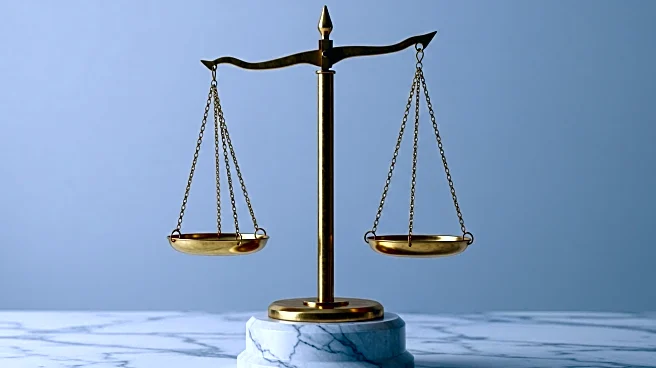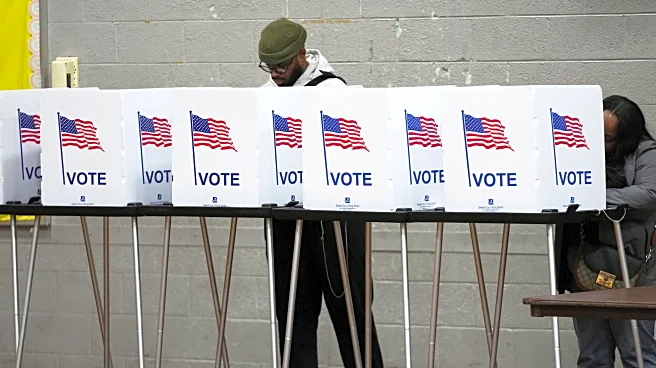What's Happening?
R. Adhiyaman, president of Aathi Thamizhar Peravai, has expressed opposition to the demand for permanent government jobs for conservancy workers, emphasizing the importance of dignity and self-respect over economic development. This stance contrasts with CPI(M) State secretary P. Shanmugam's support for the workers' protest and job permanency. Adhiyaman argues that the issue is not solely about economic exploitation but about the dignity of the work itself. He highlights the Supreme Court's 2013 verdict to abolish manual scavenging and the need for rehabilitation. Adhiyaman points out that certain communities are disproportionately involved in conservancy work, and permanent jobs perpetuate this cycle.
Why It's Important?
Adhiyaman's stance brings attention to the ethical and social dimensions of conservancy work, challenging the notion that economic development alone can address systemic issues. His emphasis on dignity and rehabilitation highlights the need for broader societal change and the elimination of caste-based occupational roles. The disagreement between Communist and Periyarist perspectives underscores the complexity of addressing labor rights and social justice. This debate has implications for public policy, labor rights, and social equity, potentially influencing how conservancy work is perceived and managed in the future.
Beyond the Headlines
The discussion around conservancy work raises questions about caste dynamics and social justice in labor practices. Adhiyaman's focus on dignity challenges traditional views on economic development and labor rights, advocating for a shift in societal attitudes. The debate may prompt policymakers to reconsider labor policies and explore alternative solutions for marginalized communities. It also highlights the need for comprehensive rehabilitation programs that address both economic and social aspects of labor rights.










